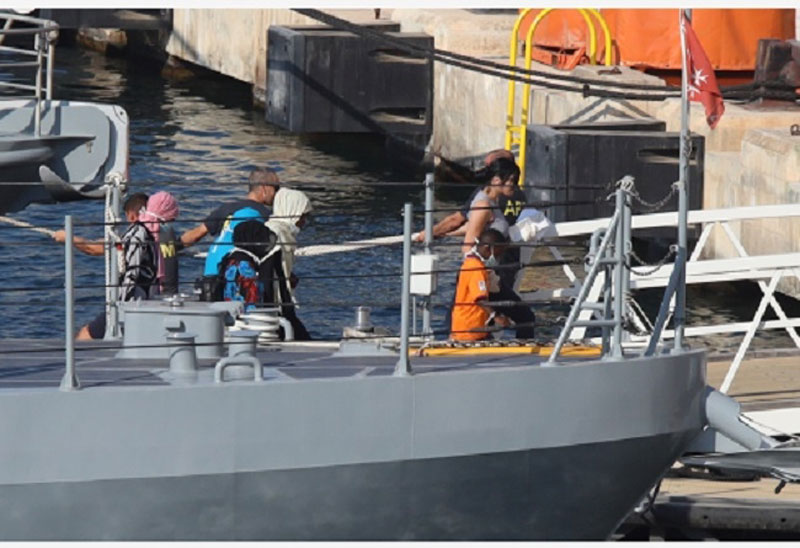
Germany, France, Italy and Malta have agreed on how to jointly handle migrants who arrive in the Mediterranean.
 (Illustrative
image). Migrants arrive at Haywharf in Floriana, Malta, on August 12, 2019.
(Illustrative
image). Migrants arrive at Haywharf in Floriana, Malta, on August 12, 2019.
A migration meeting between the four EU members was held in Malta on
September 23. The meeting was mediated by the Finnish presidency of the Council
of the EU. European Commissioner for Migration, Home Affairs and Citizenship
Dimitris Avramopoulos was also present for the migration mini-summit.
The position paper will be
presented to the other members during the Justice and Home Affairs Council
meeting scheduled for October 8 in Luxembourg.
Avramopoulos described the
framework as a "predictable and structure set of temporary
arrangements" which would kick in every time a migrant vessel is rescued
at sea.
"I find it crucial that
we move away from ship-by-ship arrangements towards a more predictable
solution," Finland's
Interior Minister Maria Ohisalo said.
"Upon approval,
countries have to come forth and volunteer as places for disembarkation, and
others who accept will participate in relocation," said Maltese Minister
of Home Affairs and National Security Michael Farrugia.
He added that the mechanism
proposed is aimed at not leaving frontline countries "alone".
In comments he gave to the
Maltese media, Farrugia said that the members will have a chance to agree,
disagree or propose amendments to the position paper agreed upon on September
23.
Source: NDO
The first summit between the European Union (EU) and the Gulf Cooperation Council (GCC) in Brussels, Belgium, marked an important step forward in their bilateral relations.
The 45th General Assembly of the ASEAN Inter-Parliamentary Assembly (AIPA-45) opened in Vientiane on October 19.
Many countries are grappling with rapidly aging population. As population aging becomes an irreversible global trend with significant impacts on economic and social sectors, nations face the urgent task of creating flexible policies to adapt to and make the most of this trend to build prosperous and sustainable societies.
With a series of stimulus measures, the world tourism industry is on the way to recovery as before the COVID-19 pandemic broke out. Facing the opportunity to take off, the "smokeless industry” is expected to strongly contribute to global economic growth while promoting potential and cohesion, contributing to peace and sustainable development.
The danger from the COVID-19 pandemic is still latent, threatening people’s health and lives in the context that the immunity provided from the COVID-19 vaccine has decreased. Many other dangerous diseases are also likely to break out when the global vaccination rate slows down, due to inequality in access to health services, vaccine hesitancy, and consequences of economic recession.
The Association of Southeast Asian Nations (ASEAN) is witnessing a rise in the sales of electric vehicles (EVs) in Vietnam, Malaysia and Indonesia, according to Maybank Investment Bank Research (Maybank IB Research).



 (Illustrative
image). Migrants arrive at Haywharf in Floriana, Malta, on August 12, 2019.
(Illustrative
image). Migrants arrive at Haywharf in Floriana, Malta, on August 12, 2019.